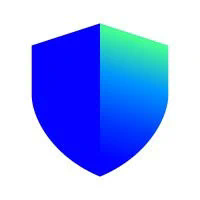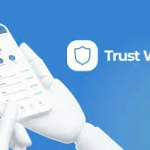A Comprehensive Guide to MEW Wallet: Exploring Features, Security, and Usability
## Introduction
In the rapidly evolving landscape of cryptocurrencies, digital wallets have become an essential tool for users looking to manage their assets efficiently and securely. Among these wallets, MyEtherWallet (MEW) stands out as a popular choice, particularly for Ethereum users. This comprehensive guide delves into MEW Wallet, exploring its features, security protocols, usability, and beyond.
## What is MEW Wallet?
MyEtherWallet (MW) is an open-source, client-side interface for generating Ethereum wallets and interacting with the Ethereum blockchain. Launched in 2015 by Taylor Monahan and Kosala Hemachandra, MEW offers users the ability not only to create secure wallets for their Ether (ETH) and Ethereum-based tokens but also to facilitate transactions, manage smart contracts, and engage with decentralized applications (dApps).
## Key Features of MEW Wallet
### 1. **Client-side Wallet**

One of the primary features of MEW is that it allows users to create wallets on their local devices rather than relying on third-party servers. This design ensures that private keys are never stored online, which significantly reduces the risk of hacking and unauthorized access.
### 2. **Intuitive Interface**
MEW provides an accessible, user-friendly interface suitable for both beginners and seasoned cryptocurrency users. The dashboard is designed to display essential information, such as wallet balances and transaction history, clearly and concisely.
### 3. **Token Management**
Besides Ether, MEW supports a vast array of ERC-20 tokens. Users can easily manage their tokens by adding them to their wallet and viewing their balances. This feature enhances the wallet’s usability, making it a versatile tool for digital asset management.
### 4. **Secure Private Key Storage**
MEW emphasizes the importance of security for its users. By generating private keys locally, MEW ensures that only users have access to their funds. Furthermore, users have the option to store their keys in different formats (e.g., JSON file, mnemonic phrase) for enhanced security.
### 5. **Integration with Hardware Wallets**
For users seeking an additional layer of security, MEW offers integration with hardware wallets such as Trezor and Ledger. This functionality allows users to sign transactions while keeping their private keys offline, significantly mitigating the risks of cyber threats.
### 6. **Access via Multiple Platforms**
MEW Wallet is accessible through various platforms, including web browsers, mobile apps (iOS and Android), and desktop applications. This multi-platform support ensures that users can manage their assets conveniently, regardless of their device preference.
### 7. **Decentralized Applications (dApps) Interaction**
MEW Wallet enables users to interact with various dApps seamlessly. This integration allows users to engage in decentralized finance (DeFi) activities, trade NFTs, and access other blockchain-based services directly from their MEW Wallet.
## Security Protocols
### 1. **Open-Source Code**
As an open-source platform, MEW allows developers and security experts to audit its code and identify potential vulnerabilities. This transparency builds trust within the community, as users can rest assured that the wallet adheres to best practices in security.
### 2. **Two-Factor Authentication (2FA)**
MEW encourages users to implement two-factor authentication for an added layer of protection. While the wallet does not have an inherent 2FA feature, users can enable it through associated email accounts and other security measures.
### 3. **Phishing Protection**
Users are advised to access MEW only through official channels to avoid phishing attacks. MEW demonstrates a commitment to user safety by providing educational resources that outline how to identify phishing attempts.
### 4. **Backup and Recovery Options**
MEW enables users to back up their wallets and provides recovery options in case access is lost. Users are encouraged to use multiple methods for maintaining backups, ensuring they can regain access to their funds.
## Usability
### 1. **Creating a Wallet**
The wallet creation process is straightforward. Users need to visit the MEW website or app, select the option to create a new wallet, and follow prompts to generate secure keys. Users then have the choice to save their keys in various formats, such as hardware wallets or local files.
### 2. **Sending and Receiving Cryptocurrencies**
Once the wallet is created, sending and receiving cryptocurrencies is a simple task. Users only need to enter the recipient’s address, specify the amount, and confirm the transaction. MEW Wallet also provides insights into network fees, helping users make informed decisions regarding their transactions.
### 3. **Interacting with Smart Contracts**
For advanced users, MEW serves as a platform for interacting with Ethereum smart contracts. Through the wallet interface, users can deploy new contracts, call functions, and execute various blockchain transactions.
### 4. **Integration with Other Wallets**
Users can easily import existing wallets from other platforms to MEW. This feature allows the seamless migration of assets and enhances user experience by consolidating digital asset management.
### 5. **Mobile Experience**
The mobile application is designed for easy navigation, allowing users to manage their wallets and conduct transactions on the go. The app retains many of the functionalities available on the desktop version, including token management and interaction with dApps.
## Conclusion
In the competitive world of cryptocurrency wallets, MEW distinguishes itself through its commitment to security, user-friendly interface, and robust feature set. By offering a variety of functionalities, including wallet creation, token management, and dApp interaction, MEW serves as a comprehensive tool for both novice and experienced cryptocurrency enthusiasts.
While users should always remain vigilant regarding security, MEW Wallet provides tools and resources to help users keep their assets safe. The integration with hardware wallets and the emphasis on private key management further strengthen its position as a trusted option for Ethereum users.
In conclusion, as the cryptocurrency sphere continues to grow and evolve, it is crucial for users to choose wallets that prioritize security, usability, and innovation. MEW Wallet meets these criteria and remains a viable choice for anyone looking to navigate the world of Ethereum and beyond. This wallet not only facilitates transactions but also empowers users to engage with the broader blockchain ecosystem, making it an essential tool for managing digital assets in today’s digital world.

